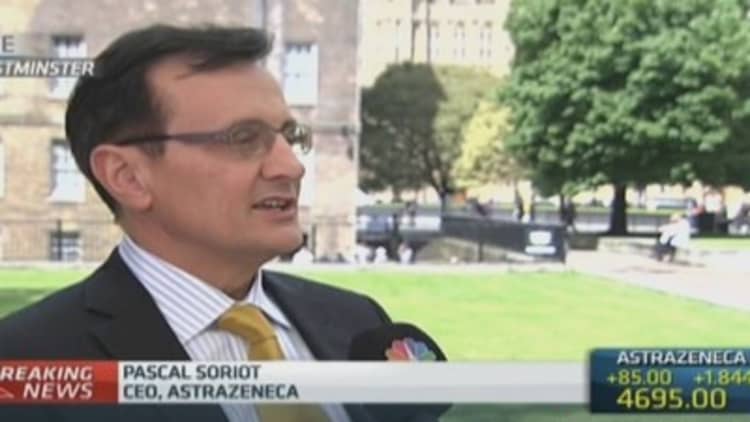Before you can be a savvy shopper, you have to know the prices.
The trend toward consumers becoming more responsible for health-care spending decisions grew stronger Wednesday as three major health insurers said they will partner with a nonprofit group to share information about prices and quality of medical services via an online portal.
Aetna, UnitedHealthcare and Humana are expected to be joined soon by other insurers in sharing their massive amounts of price data, which the Health Care Cost Institute hopes to give the public free access to beginning in early 2015.
The move, which among other things will allow price-comparison shopping by consumers, comes amid a complicated ongoing effort to control health-care costs, which at $2.7 trillion annually account for nearly 20 percent of the entire U.S. economy.
In recent years, individuals have become increasingly responsible for paying more of their medical costs out of their own pockets, because of increased deductibles and co-payments in their insurance plan, as well as a narrowing of the networks of providers covered by their insurance.
"Consumers, employers and regulatory agencies will now have a single source of consistent, transparent health-care information based on the most reliable data imaginable, including actual cost, which only insurers currently have," said David Newman, executive director of the independent nonprofit HCCI.
"Voluntarily making this information available will be of immeasurable value to consumers and other health system participants as they seek to manage the cost and quality of care," Newman said.
Other major insurers have expressed interest in joining the initiative, and the group "expects additional carriers to participate in the near future" and be on board for the launch of the tool, HCCI said.
HCCI's online "transparency tool" will aggregate pricing data from commercial health plans, as well as Medicare Advantage and Medicaid plans if the nonprofit gets individual states to share that information. Cost data will be supplemented with information about the quality of care and other data to help consumers "make more information decisions about health care," HCCI said.
Read MorePfizer CEO: AstraZeneca drugs warning 'red herring'
Newman boasted that HCCI's pre-existing relationships with insurers give it access to data on billions of insurance claims quicker than other sources of information. "We have the fastest health-care data...out there," he said.
"We hold data on just about 25 percent of the entire insurance market under age 65," Newman said.
In addition to free, publicly available data, HCCI's tool will give password-protected access to consumers for prices related to their individual plans. Insurers who already have price-comparison tools of their own will integrate them with HCCI's tool.
And the nonprofit also will, for a price, help employers customize the data for use by their workforce. Revenue from that will support the initiative.
HCCI's tool will join a growing field of companies and online portals set up to shed light of actual health-care costs, including Castlight Health, whose stock started public trading earlier this year, as well as Clearhealthcosts.com and Healthcare Bluebook.
Hidden for decades
Medical prices and costs have been hidden from the public for decades. That's largely because most people have had their health expenses covered by private insurers or by government-funded coverage such as Medicare and Medicaid. The listed prices of health services—even if they can be found out by the general public—often bear little or no relation to what insurers actually pay.
Read MoreObamacare's $3 billion insurance windfall
HCCI's online tool is "encouraging. I think it's a step in the right direction," said Robert Field, a health law professor at Drexel University. "Price information is all the more important to more people than it might have been five or 10 years ago."
"What this is doing is part of a trend to turn up more into consumers than just patients," said Field, author of the book "Mother of Invention: How the Government Created 'Free-Market' Heath-Care."

"This is increasingly important, because more and more patients have high-deductible plans, which leave them exposed to more of the costs," Field said. "We've seen that under the Obamacare exchanges, where there are plans that have high deductibles, as a high as $5,000 or $6,000 per year."
"We've seen an increasing trend of employers' plans with high deductibles as well."
Read MoreAlready? Obamacare 2015 premiums begin rollout
Field said the cost transparency provided by tools such as HCCI's will be a positive for some consumers because it will allow them to not only shop for the best deal, but also to bargain with providers for a better price. However, he noted that some others will not like that experience, because they prefer not having to worry about haggling, particularly when serious medical issues are at stake.
Making a market that works
"I would expect, and economists would agree, that this should exert downward pressure on prices. Price transparency is the first step toward having a market that actually works," Field said. "And it should keep providers more on their toes, particularly with uninsured patients, where they have been able to get away with high-sticker prices. I think this should be able to rein this in."
An Aetna spokesman said, "We believe that the health-care system should be redesigned around the consumer. Delivering reliable, transparent cost and quality information to consumers is a major part of that process. This initiative is a step in the right direction and will provide all consumers with access to comprehensive information about the price and quality of health-care services."
UnitedHealthcare said, "It's our belief that the new tool will be of immeasurable value to consumers and other health system participants as they seek to manage the cost and quality of care. This unprecedented initiative is testament to our belief that educated consumers benefit the entire health-care system."
A Humana spokesman said the tool "will satisfy consumer, employer and regulator demand for an easy and consistent way to compare prices by providing a free, single source of information on health-care services, price and quality. "
—By CNBC's Dan Mangan.


